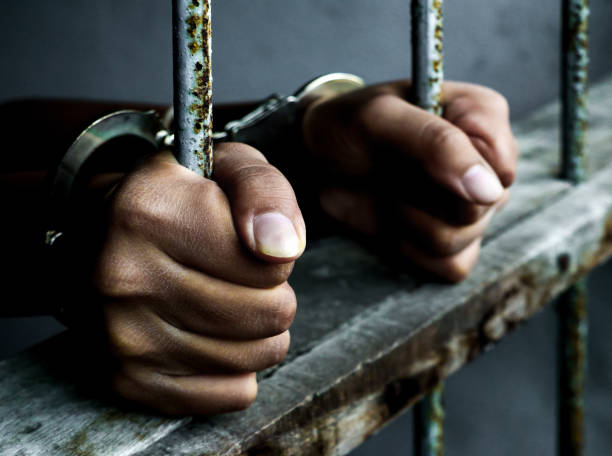In the early morning hours of Sunday, August 6, 2017, a 17-year-old high school student was murdered in her home in Arnett Gardens in Jamaica. Her 12-year-old sister was also injured in the attack. Waking up to murders overnight has become a daily occurrence in this country, but it is heartening to realize that there is still outrage at each incident.
Initial reports about the motivations for the Mickolle Moulton’s murder was allegedly due to her refusal to engage in sexual activity with men in the Arnett Gardens community. Several women in the community, in addition to a few men, took to the streets in protest against the victims’ family supposedly ruining the reputation of the community. Because of the protest the victims’ mother had to be escorted out of the community by the police. She was being bullied.
We tend to think of bullying as a school age problem, but if we look at Jamaican society we will see that bullying happens in every sector of it: parliament, churches, work places, traffic, homes, playground, street corners. And, when we add all those together we get a culture that tolerates bullying, and maybe even promotes it?
What happened to the mother of Micholle Moulton is almost as horrendous as what happened to Micholle herself. A mother grieving the loss of one child and the injuring of another was bullied by the very people (mothers, sisters, daughters, fathers, sons, brothers) who would be expected to care for her and support her in her grief. There was outrage all over again at this new development. And while the initial reaction of outrage was appropriate, it is important to take a step back and look at this incident in the context of our culture that tolerates and possibly promotes bullies.
WHAT IS BULLYING?
Definitions of bullying include:
Use superior strength or influence to intimidate (someone), typically to force them to do something. Bullying is the use of force, threat, or coercion to abuse, intimidate of aggressively dominate others. The behavior is often repeated and habitual (wikepedia.com).
The term “Peer Abuse” is important to add to the definition as well. We are familiar with the certain types of abuse; physical abuse, verbal abuse, emotional abuse, sexual abuse. Peer Abuse (bullying) includes these types as well as cyber bullying. The elements of Peer Abuse include: isolating or shunning the victim; being aggressive and hostile to the victim; an intent to harm the victim; power imbalance between victim and bully.
OUTCOMES OF BULLYING?
Physical health problems – children who are bullied are more likely to complain of headaches and stomach aches. Some of which may be psychosomatic and at other times it may be illnesses caused by physical abuse.
Academically – children who are bullied have lower school attendance, lower grades and are less likely to complete schooling.
Mental illnesses including: depression, anxiety, psychotic symptoms, addictions, behavioral and emotional problems. All of which increases the risk of suicide.
Social problems – lack of friendships, lack of identity and sense of self-worth.
The outcomes listed above are not all encompassing and are not just limited to the victims, but some are applicable to the bullies themselves as well as persons who witness the bullying of others.
BULLYING BY THE NUMBERS
Sixty to sixth five percent of school children in Jamaica reported being bullied at some point in their time at school (Child Development Agency report published 2015)
Seventy percent is the number of children who reported being bullied in the previous school year (Child Development Agency report published 2015).
Bully victims are two to nine times more likely to consider suicide than non-victims (Yale University Study review published 2008)
Almost 50% is the number of suicides by teenagers in the UK that is linked to bullying (Charity Beat Bullying study published 2010)
While these numbers are significant they do not tell the full story, as all these studies were about children. There are adult victims of bullying in the workplace and in our communities, and more studies need to be done to find out the full impact on these adults some of whom are victims and others of whom are the bullies.
WHAT TO DO?
Different situations require different approaches and solutions, but if you or someone you know is being bullied, get help. It is not a weakness to ask for help. Intervention, however, should not just be for the victims but also for the bullies since eradicating bullying is the goal.
For immediate help: Call 119
For counseling call: 324-3198
FOR MORE INFORMATION AND SUPPORT:
Le Antonio’s Foundation End Bullying Campaign
Child Development Agency
Dr. Julian Walters is originally from Montego Bay, Jamaica. She earned her Bachelor’s of Science Degree from Oglethorpe University in Atlanta, GA. Her medical degree is from the University of Pittsburgh School of Medicine in Pittsburgh, PA, USA. She completed her three-year adult training in Psychiatry at the University of Arizona. She then transferred to University of Florida in Gainesville, FL for a two-year fellowship training in Child and Adolescent Psychiatry. Dr. Walters has worked in public and private sector in the USA and in Jamaica and is in private practice full-time in Montego Bay








